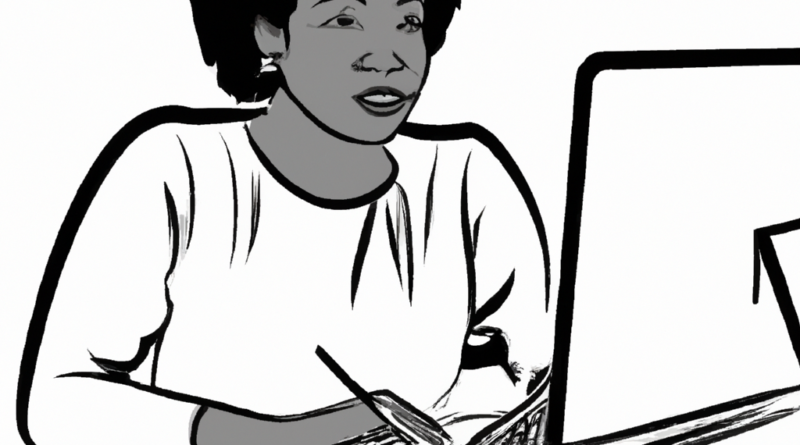AI will be terrible for media, and it may already be too late to stop
Just what we need: another article about the rapid rise to prominence of artificial intelligence, and the content it is creating. For those of us who work in professional content generation, AI has been on our radar for some time. But I don’t think any of us would have predicted how rapid its recent emergence into the big time would have been.
There’s an excellent article exposing the way that AI-generated content is impacting the work of writers employed by news organizations here. It makes sobering reading. Yes, for a long time many ‘journalists’ have been employed creating copy with the sole motivation of search engine optimization (SEO). Reading articles that have been written with SEO in mind is tiresome. I don’t do it: I want my writing to be me, writing in my voice, in my style, as well as I can do it. I’m lucky that I can afford this luxury, and I’m hoping for my readers that they appreciate the integrity of this approach. Many modern journalists might be employed by a newspaper of repute, but they don’t get their bylines in the paper. Their job is to show up for a shift and get paid perhaps £130 to write an article an hour for 8 hours. The subjects are determined by keywords trending on google. They can’t afford to phone people up and get quotes: all they can do is internet research.

This is bad enough, but people like this will soon be replaced by AI-generated articles, all written with the purpose of SEO. Just like quants in banking whose algorithms manage to generate small profits in rapid trades, the SEO-optimised pieces, fine-tuned and banged out quickly, will help gain a media-owner’s website an advantage in organic search. The flood of dull, ill-researched, repetitive content that fills the web is about to become a tsunami. Many people who write for a living will be directly replaced by AI, and those that remain will see their work lost amid the noise of low-value but highly SEOed writing.
But it’s not just writers who are facing a bleak future: it’s also designers and artists, because AI image-from-text services are getting better, and offer editors free artwork. Before long, magazine covers, book covers, article illustrations and even children’s books will be created using AI ‘art’. It’s free, and very quick, to feed in text and then come up with a number of illustrations to choose from. This article is illustrated using images created by text prompts from me by DALL-E. The AI image generators have all be trained on existing work, so it’s a sort of mass micro-plagiarism that’s going on. Fresh from viewing the Cezanne exhibition at the Tate I asked DALL-E to paint Mont Saint Victoire in his style. These were the results:



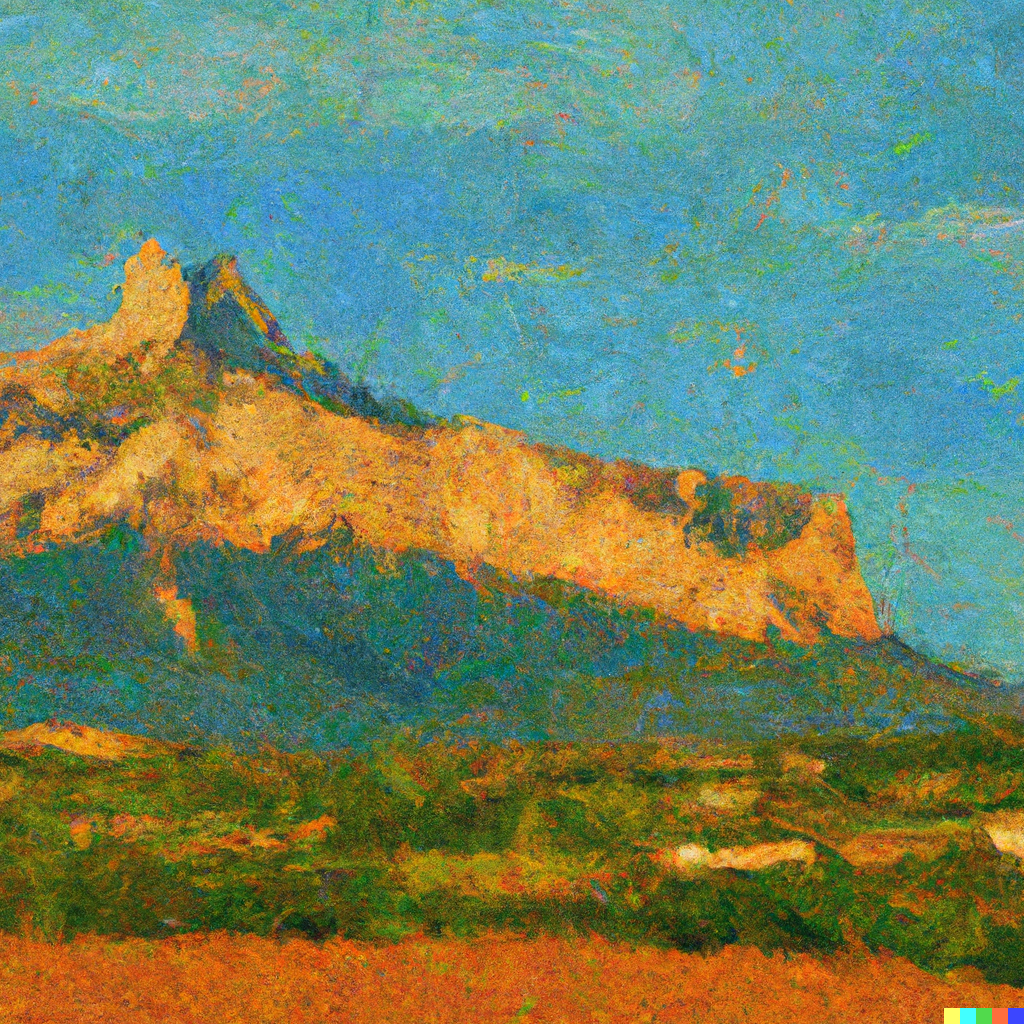
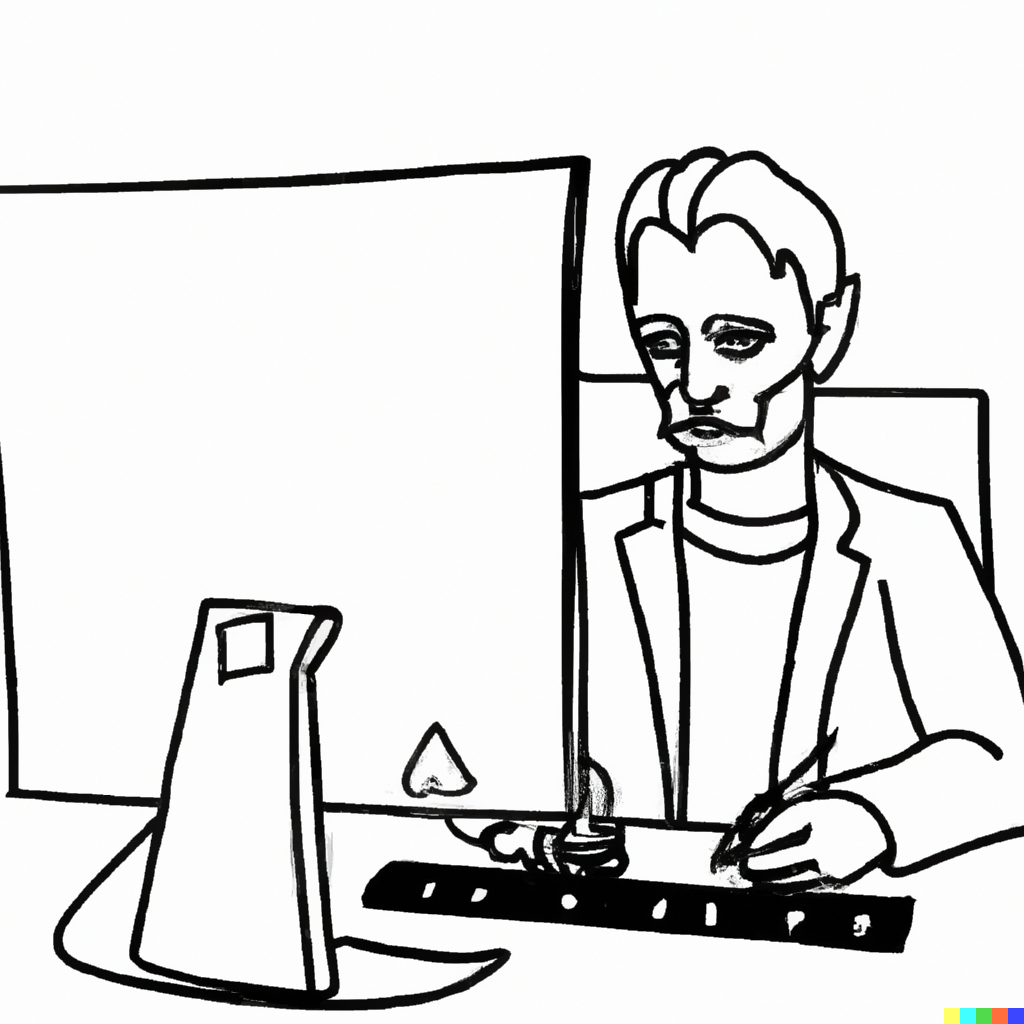
But there’s another twist here, and that’s the way that search engines will operate in the future. Have a look at Bing New, Microsoft’s latest iteration of its search engine that has AI-enabled chat. Feed it a question and you get an answer that for many people will obviate their need to actually go the information source itself, although the references it uses are cited and clickable. This will be a disaster for those sites relying on organic search for traffic. When Google rolls out their equivalent, many websites will see their traffic drop considerably, and for a lot of people, this will create a closer relationship with their search engine, and have significant implications for the way the web works.
Here are some queries I fed New Bing’s AI chat, and the responses I got:
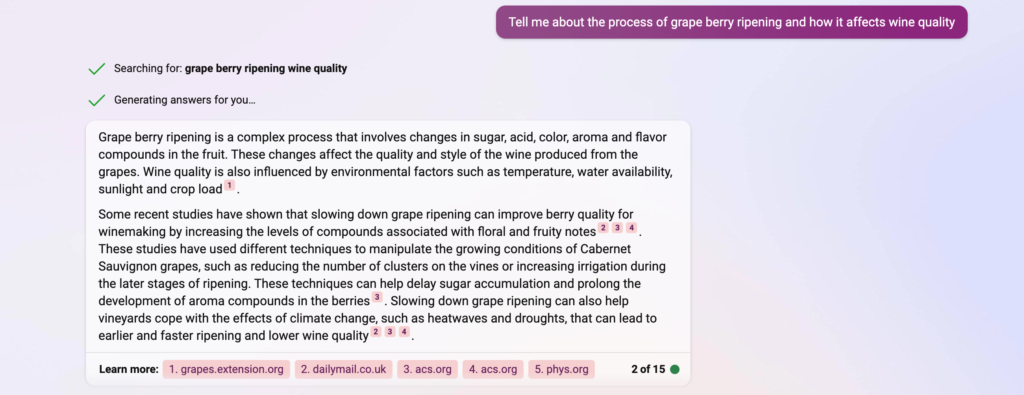
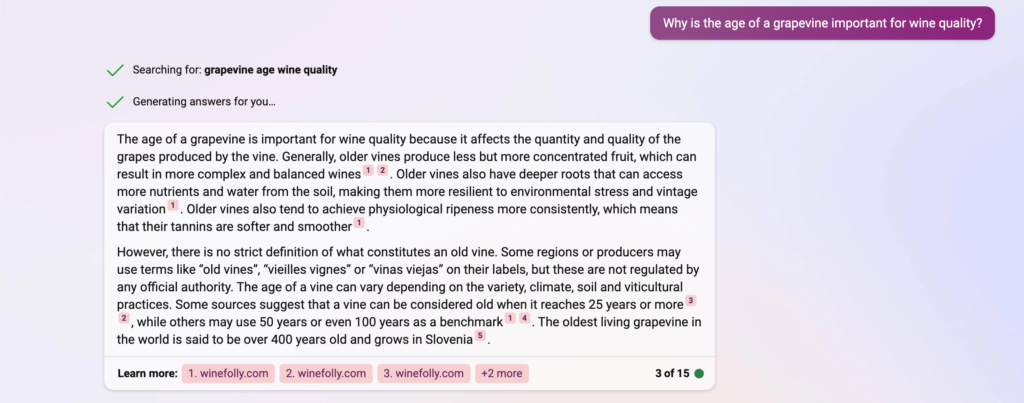
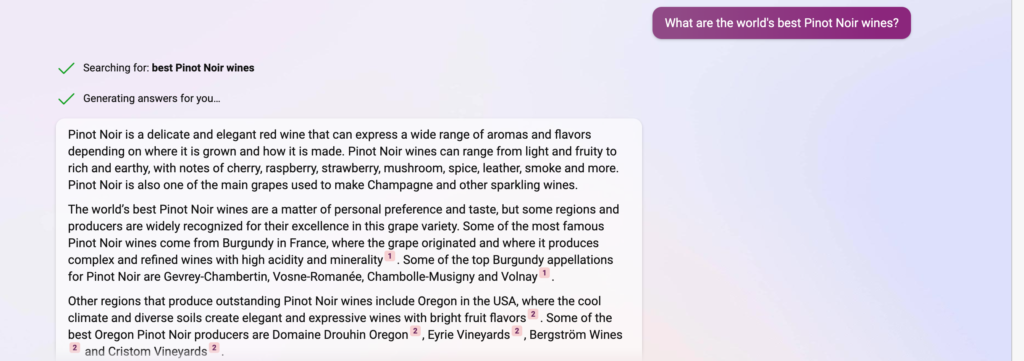

This is all happening very fast, and it is something we should be concerned about, because for content generation I can’t see much of an upside for AI, except for those media organizations who are going to be able to cut their costs significantly – but alongside this, the quality of their content will go down.
I’ve been trying to think of an upside to the use of AI like this. It might help functionality when incorporated into programs like Microsoft’s Office Suite (something that will soon happen). It will enhance ‘help’ sections on websites. Maybe for songwriters it might be a useful tool (are the lyrics to most pop songs always the most important thing about the song?). But for content generation? It will create a lot of low-quality, derivative content with an appearance of authority, and this is a problem.
For the future? No doubt, AI will improve. For many, it may become their primary source of information, simply because it is so much cheaper to create. Then we have the issue of economics. Will human-generated content become a luxury, to be savoured and enjoyed by those with the means and motivation to seek it out? What we have taken for granted in the past – the easy and affordable availability of human-authored media – might become something only enjoyed by a few.
Will this widen the divide between the haves and have-nots? Could it cause a shift in both directions, with a lot of what is free, high-quality content now moving to the other side of the paywall?

